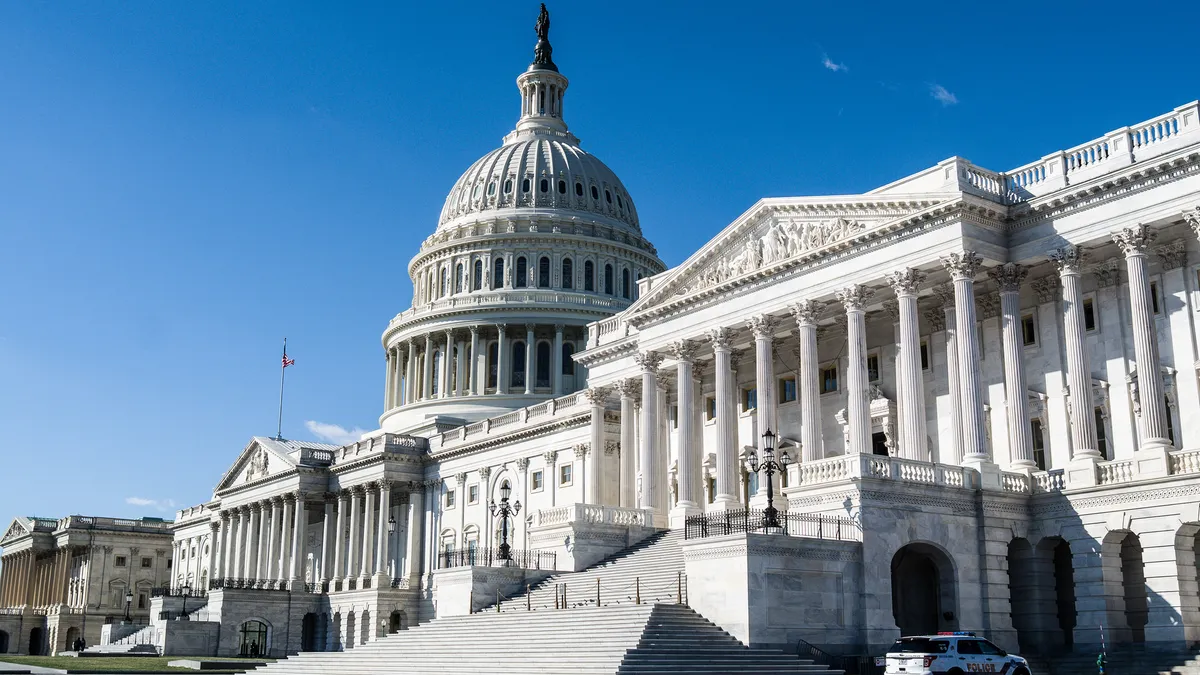Dive Brief:
- The House on Thursday passed a Senate-approved bill that seeks to create private sector and government partnerships to develop advanced nuclear power, sending the measure to President Donald Trump's desk.
- S. 97 would authorize the creation of a National Reactor Innovation Center to combine national lab and Department of Energy (DOE) expertise for the development of advanced reactor concepts.
- Last week, a bipartisan group of senators introduced an ambitious nuclear energy bill, S.3422, that would further increase Congress' directives on how the DOE should shepherd advanced nuclear investments. Nuclear energy advocates view this as strong momentum for the advanced reactor industry.
Dive Insight:
U.S. nuclear energy advocates critical of the lag in advanced reactor domestic research have long compared U.S. capabilities to Russia and China.
S. 97 "will help the United States reestablish itself as a world leader in nuclear energy innovation," Sen. Lisa Murkoski, R-Alaska, said in a statement.
For example the bill would authorize the development of a fast neutron testing facility similar to one in Russia. The commercially available facility would be integral to testing advanced reactors, materials and fuels.
The bill also supports opportunities for innovation by guiding the DOE to prioritize private sector partnerships in nuclear energy and removing subsequent barriers for private nuclear innovators, "supporting technology transfer from the National Laboratories to the private sector."
"This is one of several advanced nuclear bills that have either been signed into law or have progressed through Congress over the past few years and, with the recent introduction of S. 3422, it’s clear that we’ll continue to see strong, bipartisan efforts to support advanced nuclear technology," Erin Burns, senior policy advisor at clean energy advocacy group Third Way, wrote Utility Dive.
The House approved its own version of the legislation at the beginning of 2017, as part of a broader bill seeking to advance research at the Department of Energy.















